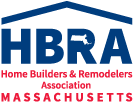On March 28, Governor Baker signed into law Senate Bill No. 9, An Act creating the next-generation roadmap for Massachusetts Climate Policy, as Chapter 8 of the Acts of 2021. More than two years in the making, this omnibus legislation will have a huge impact upon utilities, businesses, consumers and commercial and residential development in the Commonwealth for the next 30 years.
The final bill enacted by the Legislation did include several amendments offered by the governor and supported by the HBRAMA and other real estate and business organizations. They included extending from 12 months to 18 months the deadline by which the Division of Energy Resources (DOER), in consultation with the Board of Building Regulations and Standards (BBRS), must promulgate a new municipal opt-in specialized stretch energy building code.
Some of the key elements of the legislation are as follows:
- The Department of Energy Resources shall develop and promulgate, in consultation with the Board of Building Regulations and Standards (BBRS), a municipal opt-in specialized stretch energy code that includes, but is not limited to, net-zero building performance standards and a definition of net-zero building, designed to achieve compliance with the commonwealth’s statewide greenhouse gas limits and sublimits;
- Any stretch energy code in effect on March 1, 2021 shall remain in full force and effect provided, however, that the DOER, in consultation with the BBRS, may update such stretch energy code from time to time;
- A community designated as a Green Community that elects not to adopt the municipal opt-in specialized stretch energy code shall not lose its designation as a green community as a result of that decision;
- The DOER shall develop and promulgate the municipal opt-in specialized stretch code not later than 18 months after the effective date of this act. In doing so, the department may phase in requirements based on building types, uses or load profiles;
- In developing the specialized stretch energy code, DOER shall hold not less than 5 public hearings in geographically diverse locations throughout the commonwealth that shall represent the distinguishing characteristics of rural, suburban and urban households, 1 of which shall be held in an underserved community or community with a high percentage of low-income households;
- Conflicts over the interpretation of the new opt-in specialized stretch energy code may be appealed to the BBRS Appeals Board;
- The membership of the BBRS is increased by three new members to be appointed by the governor; 1 of whom shall be expert in commercial building energy efficiency, 1 of whom shall be an expert in residential building energy efficiency, and 1 of whom shall be an expert in advanced building technology.
- The new municipal opt-in specialized stretch energy code shall be incorporated into the base code by 2030.
The HBRAMA is committed to working cooperatively with the Division of Energy Resources and the Board of Building Regulations and Standards to develop a net zero energy code that will not jeopardize housing affordability while furthering the Commonwealth’s goal of achieving statewide net-zero carbon emissions by 2050.

